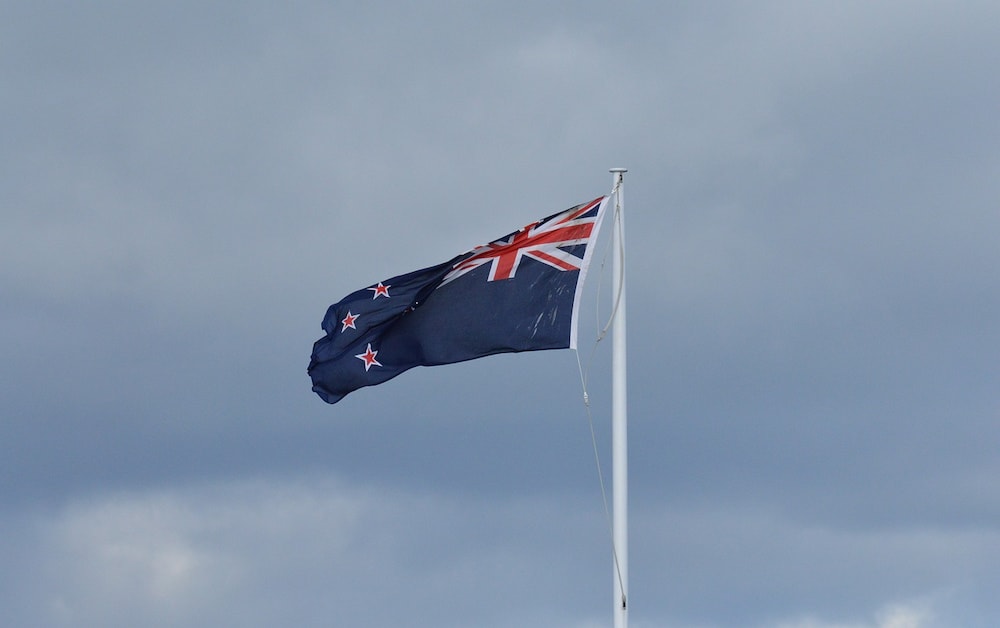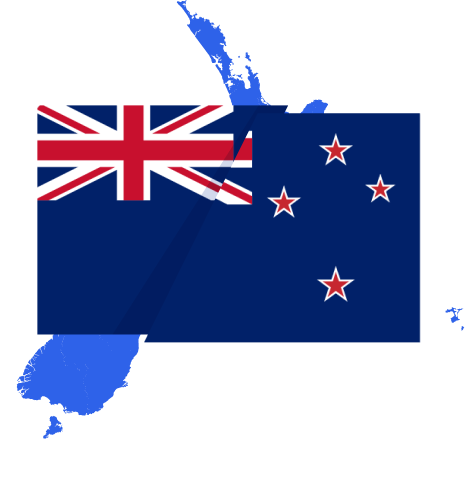Introduction
The New Zealand Privacy Act 2020 (NZPA) is a comprehensive and robust legislation governing the collection, storage, use, and disclosure of personal information by both public and private sector entities operating in New Zealand. The key objective of this Act is to enhance the privacy and data protection rights of individuals following current international standards. By updating the previous Privacy Act of 1993, this new rendition imposes more stringent obligations and greater responsibility on organizations that handle personal data, aiming to address and tackle contemporary privacy concerns effectively. Organizations need to operationalize their processes to meet these requirements and achieve compliance with the NZPA.
Key definitions and scope
The Act applies to a broad spectrum of entities, including individuals, companies, government departments, and other organizations, collectively referred to as “agencies.” The Act grants rights and safeguards to natural persons, including employees and consumers, in relation to the processing of their personal data. The Act defines personal information as any information about an identifiable individual, including names, addresses, contact details, health records, financial information, and more. The NZPA covers all aspects of data processing activities, ensuring that personal information is collected, stored, used, and disclosed responsibly.
The Act is structured around 13 privacy principles that guide agencies in appropriately handling personal information. These principles ensure that individuals are informed about how their data is being used, grant them the right to access and request correction of their data and require agencies to implement security measures to prevent data breaches. The NZPA aims to strengthen privacy protections and build trust between individuals and organizations by mandating transparency and accountability.
Information Privacy Principles (IPPs)
The Privacy Act 2020 in New Zealand is an essential legislation that aims to regulate and protect personal information. It is based on 13 Information Privacy Principles (IPPs) that provide comprehensive guidelines for handling personal data. These principles cover a wide range of aspects, including data collection for lawful purposes, the methods and sources of data collection, the accuracy and quality of the data, and the rights of individuals to access and correct their personal information. By establishing clear rules and standards, the IPPs play a crucial role in ensuring that organizations comply with data privacy regulations in New Zealand. They offer specific and practical guidance to organizations, outlining how they should responsibly manage and safeguard the personal data they collect.

Collecting personal information
Under the New Zealand Privacy Act 2020 (NZPA), organizations must collect personal information only for purposes directly related to their functions or activities and ensure that these purposes are lawful. This principle of data minimization mandates that agencies should not collect more information than is necessary for the specific purpose. When collecting personal information, organizations must provide clear and concise information to individuals about why their data is being collected, who will receive it, and what the consequences are if they choose not to provide the information. This transparency ensures that individuals can make informed decisions about their data and provide their consent knowingly.
Additionally, the NZPA emphasizes the importance of informing data subjects about their rights and the organization’s obligations. This includes ensuring that the data collection process is transparent and that individuals know how their data will be used and protected. By adhering to these principles, organizations comply with the NZPA and build trust with their customers and stakeholders by demonstrating a commitment to data privacy and security.
Data processing activities
Data processing activities under the New Zealand Privacy Act 2020 (NZPA) encompass collecting, storing, using, and sharing personal information. Organizations must ensure that these activities align with the purposes for which the data was initially collected and achieve privacy compliance across all data processing activities. This involves maintaining the data’s accuracy, currency, and security to prevent misuse and unauthorized access. Compliance with these requirements ensures that personal information is handled responsibly and that individuals’ privacy is protected throughout the data lifecycle.
Organizations must implement reasonable safeguards to protect personal information from loss, unauthorized access, or other misuse. This includes using appropriate security measures based on the sensitivity of the data and the potential risks involved. Additionally, entities must be transparent about their data processing practices and provide individuals with information about how their data will be used, who will have access to it, and how they can exercise their rights under the NZPA.
Access requests and corrections
The NZPA grants individuals robust rights regarding their personal information, emphasizing transparency and accountability in data handling. One of the fundamental rights under the NZPA is the ability to make access requests. Individuals can make access requests to obtain their personal information held by organizations, and these organizations are obligated to respond promptly. This process ensures that individuals can see what data is being collected and how it is used, fostering trust and accountability.
In addition to access requests, the NZPA allows individuals to request corrections to their personal information. If an individual believes that the data held about them is inaccurate, outdated, or incomplete, they can request that the organization correct this information. Organizations must take reasonable steps to amend the data, or if they disagree with the correction request, they must attach a statement of the correction sought but not made. These provisions protect individuals’ privacy rights and ensure the accuracy and integrity of the processed personal information.
Serious harm and privacy breaches
The concept of “serious harm” is a pivotal aspect of addressing privacy breaches under the New Zealand Privacy Act 2020 (NZPA). A privacy breach involves unauthorized or accidental access, disclosure, alteration, loss, or destruction of personal information. When such an incident occurs, assessing whether it is likely to cause serious harm to the affected individuals is essential. If the breach meets this threshold, it is classified as a notifiable privacy breach.
Organizations must notify the Privacy Commissioner and the individuals concerned in the event of a notifiable privacy breach. This notification must be made as soon as practicable and, ideally, no later than 72 hours after becoming aware of the breach. This prompt notification aims to mitigate potential damage, providing affected individuals with the information they need to take protective measures.
The requirement to notify helps ensure accountability and transparency in handling personal data. It also underscores the importance of having robust safeguards in place to prevent such breaches from occurring in the first place. Organizations must take reasonable steps to secure personal information, reducing the risk of breaches and severe harm to individuals.

Role of the Privacy Commissioner
The Privacy Commissioner is pivotal in enforcing the New Zealand Privacy Act 2020 (NZPA). This role encompasses several critical functions designed to ensure compliance with the Act and protect individuals’ privacy rights.
Investigative authority
The Privacy Commissioner has the authority to investigate complaints from individuals who believe their privacy has been breached. These investigations can lead to resolutions through mediation or, in more serious cases, may result in legal actions or penalties against the offending organization. This investigative power ensures that individuals have a recourse if they feel their privacy rights have been violated.
Compliance and audits
Beyond responding to complaints, the Privacy Commissioner proactively monitors compliance with the NZPA. This includes conducting audits of organizations to ensure they adhere to the privacy principles outlined in the Act. If an organization is found to be non-compliant, the Commissioner can issue compliance notices, mandating specific actions to rectify the breaches. This oversight mechanism is crucial for maintaining high data protection standards across various sectors.
Guidance and resources
A significant aspect of the Privacy Commissioner’s role is to provide guidance and resources to help organizations understand and comply with the NZPA. This involves publishing guidelines, offering training sessions, and creating educational materials covering best data protection practices. By fostering a culture of privacy awareness and accountability, the Commissioner helps organizations build robust privacy frameworks that protect personal information effectively.
Advocacy and policy development
The Privacy Commissioner also acts as an advocate for privacy rights, engaging in policy development and advising the government on privacy issues. This includes drafting new legislation, providing expert opinions on privacy matters, and representing New Zealand in international privacy forums. These activities ensure that the country’s privacy laws evolve in line with global standards and emerging technologies.
Human Rights Review Tribunal
Individuals who believe their privacy rights have been violated under the New Zealand Privacy Act 2020 (NZPA) can seek redress through the Human Rights Review Tribunal. The Tribunal is a judicial body that hears claims relating to privacy breaches and other human rights and health and disability issues.
Jurisdiction and authority
The Human Rights Review Tribunal has the jurisdiction to hear complaints about privacy breaches and determine whether the NZPA has been violated. If a breach is established, the Tribunal can order various remedies. These remedies include financial compensation for damages, orders to correct or delete personal information, and other measures to rectify the breach and prevent future occurrences. This authority ensures that individuals have a robust legal avenue to enforce their privacy rights and hold organizations accountable.
Filing a claim
To initiate a claim, individuals must first lodge a complaint with the Privacy Commissioner. They can take their complaint to the Human Rights Review Tribunal if the issue remains unresolved. The Tribunal process involves presenting evidence and arguments, after which the Tribunal decides based on the case’s merits. This process ensures privacy breaches are addressed fairly and transparently, providing justice to affected individuals.

Third-party vendors and data transfers
Organizations frequently depend on third-party vendors for services that require the transfer of personal information. Under the New Zealand Privacy Act 2020 (NZPA), any data shared with third-party vendors must be protected by adequate safeguards to prevent loss, unauthorized access, or other misuse. This ensures the integrity and security of personal information.
Ensuring compliance
Organizations must verify that their third-party vendors adhere to the same privacy standards set by the NZPA. This includes conducting due diligence to ensure vendors have robust data protection measures in place and regularly monitoring their compliance. Contracts with third-party vendors should include specific provisions on data protection, outlining the responsibilities of both parties in safeguarding personal information.
International data transfers
Additional considerations come into play when transferring data internationally. The NZPA requires that personal information transferred to foreign entities be afforded similar protections as within New Zealand. A destination country must be part of a prescribed binding scheme issued by the government of New Zealand. This often involves implementing contractual clauses, conducting risk assessments, and ensuring that the recipient country has comparable data protection laws. These measures help mitigate risks associated with cross-border data transfers and ensure compliance with the NZPA.
Data privacy in public health
In public health, the New Zealand Privacy Act 2020 (NZPA) provides specific exceptions to data privacy principles to address serious threats to public health or safety. A public sector agency, established to assist or advise public sector agencies in accordance with legislative provisions, plays a crucial role in managing public health data. This balance ensures that while individual privacy rights are protected, public safety needs can also be effectively managed during crises.
Exceptions for public health
During public health emergencies, such as pandemics or outbreaks, the NZPA allows personal information to be collected, used, and shared without the usual consent requirements. This is crucial for swiftly responding to and managing public health threats, where timely access to accurate information can save lives and prevent widespread harm. For example, health authorities may need to track the spread of a disease, identify and notify individuals who may have been exposed, or coordinate responses across various agencies.
Balancing privacy and public safety
The exceptions in the NZPA aim to strike a balance between safeguarding individual privacy and ensuring public health and safety. These provisions are designed to be used judiciously and are typically subject to oversight and accountability measures to prevent misuse. For instance, information sharing under these exceptions must still comply with principles of necessity and proportionality, ensuring that only the minimum required information is used to address the public health threat.
Conclusion
The Privacy Act 2020 is a crucial piece of legislation that marks a significant advancement in the realm of data privacy protection in New Zealand. As technology continues to advance and new privacy concerns arise, the NZPA establishes a comprehensive framework aimed at safeguarding individuals’ personal information. It is imperative for organizations to maintain a high level of vigilance and proactivity in their privacy protocols, ensuring continual adherence to the regulations while also remaining adaptable to forthcoming shifts in the privacy landscape. The collaborative endeavors of businesses, public sector entities, and individuals will play a central role in upholding the fundamental privacy rights embedded in the Privacy Act 2020.




